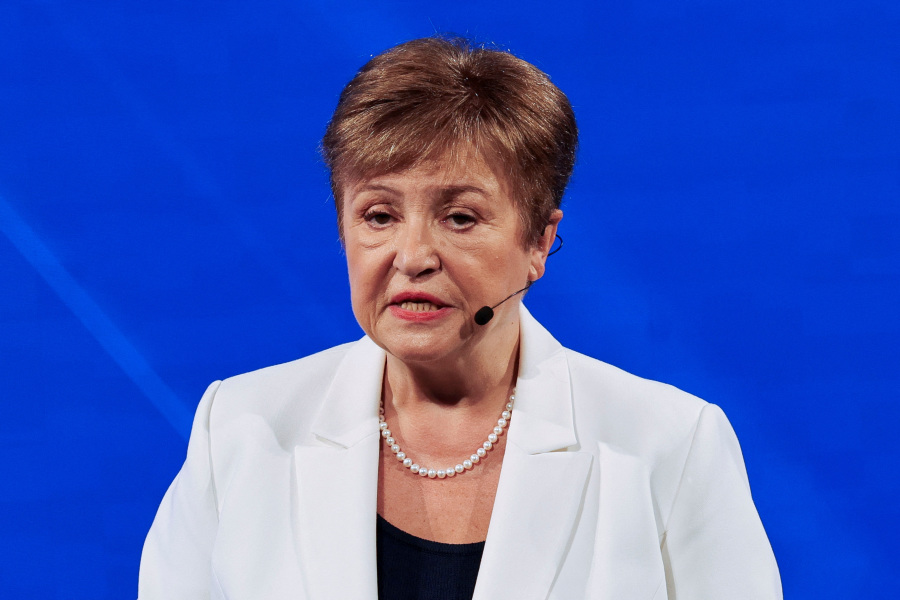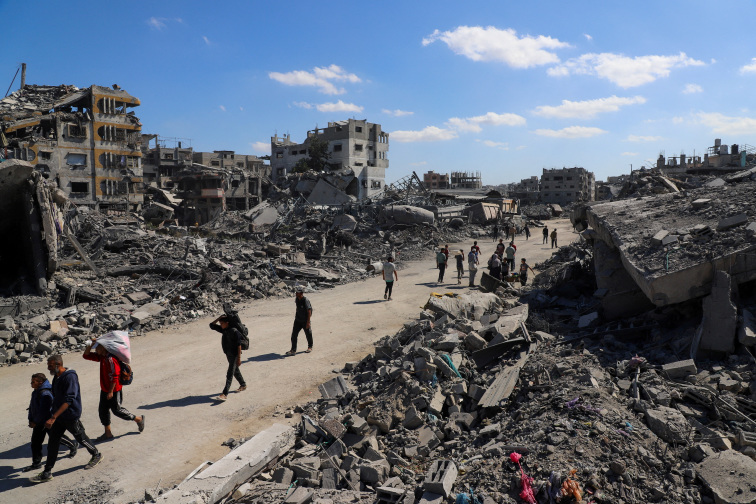WASHINGTON (Reuters) -Decisions by most countries to not retaliate against U.S. President Donald Trump's tariffs are among the top factors bolstering the global economy's resilience, IMF Managing Director Kristalina Georgieva said on Tuesday.
"The world, so far, and I cannot stress enough, so far, has opted not to retaliate and to continue to trade pretty much on the rules that have existed," Georgieva said during an event at the IMF and World Bank annual meetings in Washington, noting that this avoided debilitating tariff escalation.
Earlier on Tuesday, the fund had edged up its 2025 global GDP growth forecast in its World Economic Outlook to 3.2% from a 3.0% forecast in July, but warned that a renewed U.S.-China trade war threatened by Trump could slow output significantly.
Also supporting global growth is that the effective U.S. tariff rate has come down from prior estimates, Georgieva told the Bretton Woods Committee event. After calculating that Trump's tariffs announced in April would average 23%, the rate was reduced by U.S. trade deals with the European Union, Japan and other major partners to about 17.5%, she said.
"The effective tariff, though, what is being collected when you get exceptions to accommodate the need for the economy to function well, we calculate them somewhere between 9% and 10% so the burden is more than twice less than we thought it would be," she added.
Other factors propping up the global economy have been better policies by countries to boost private sector development and more efficient allocation of resources, as well as agility by companies to avoid the worst effects of the tariffs, by front-loading imports and quickly rearranging supply chains.
However, she said the resilience could also be tested by the stretched valuations in global markets - especially the tech sector, which has fueled a stellar market rally this year.
"This is a bet, very big bet," she said. "If it pays back, fantastic, then our problem with low growth is gone, because we will see increase in productivity and we will see an increase in growth. What if it is either slow to come true or doesn't quite materialize. What then?"
IMF chief economist Pierre-Olivier Gourinchas told Reuters earlier that the AI investment boom could lead to a bust similar to the dotcom crash in 2000 that burns equity investors, but that it would not likely result in a systemic crisis because it has not been heavily funded by debt.
(Reporting by David Lawder and Karin Strohecker, editing by Lincoln Feast.)











News magazine bootstrap themes!
I like this themes, fast loading and look profesional
Thank you Carlos!
You're welcome!
Please support me with give positive rating!
Yes Sure!